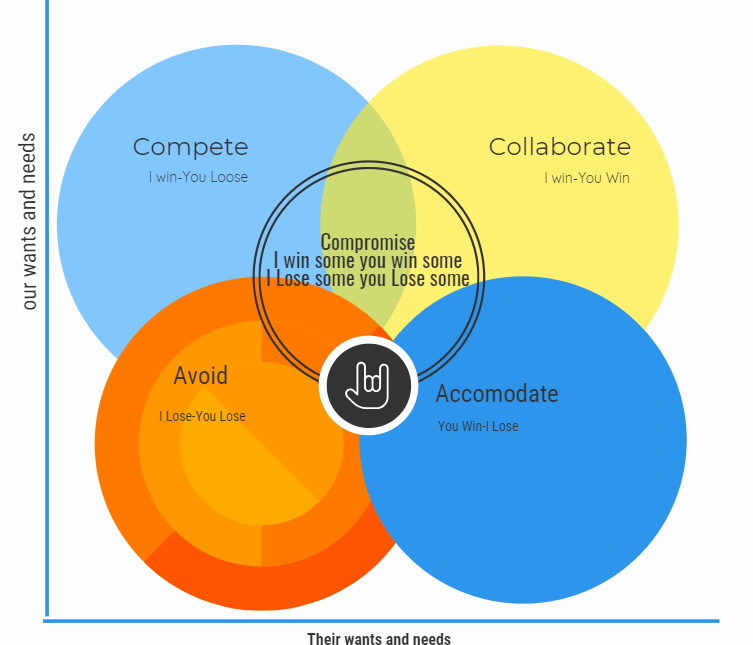The importance of negotiation is eminent for a solution and is much-needed skills which require a lot of manual polishing. The Negotiation skill is actually responsible for making or breaking the social associations and alliance. A peculiar wing associated with this skill-set is you can always get innovative and creative about the strategies to achieve it.”Desperate times desperate measures” from Tom Cruise’s Mission Impossible Rogue nation is a perfect fit to know the exquisiteness of the skillset. The realistic part is that we inculcate it every day when we buy a bunch of fruits from the shops, considering the rising rates.

Importance of Negotiation Skills
Business negotiators and salespersons merely refine the skill set under the lens of professionalism. At a fundamental level, we all have been doing this since long as students, parents and as an Individual. The business/sales sector is subjective to be under negotiation scanner from the point of view of positions. Here you have to negotiate for the proliferation of mutualism of both the parties to settle for an agreement. The fruit of the negotiation skills in business communication is mutual financial profit. This is where individualistic skills-set comes to play. Whether you are opting for the competitive style for negotiation which is sometimes aggressive or cooperative style. Again the situation involved takes the throne and decide which style is applicable. Skilled negotiators excel in both styles.
The factors involve
- Your Situation and style
- The situation and style of the opposition party
- Your position in the expected collaboration (Upper hand/Lower hand)
- The urgency of the entity for which the negotiation is made
- Any overriding goals
The following are some of the critical touch points to elevate the skill-set
- Know the BATNA, ZOPA, and WATNA
- Instigate the negotiation process with some good question to build rapport.
- Developing patience with good listening skills
- Plan development |WATNA (Worst alternative to the negotiated agreement)
- Presenting multiple offers as a means of concessions.
1. Know the BATNA, ZOPA, and WATNA

You can create a framework or deadline in the mind after which you are walking away if the negotiation outcome doesn’t take both the parties under the same umbrella in case of cooperative negotiation. Say for an instance you are a client for a gym instructor (B2C negotiation).
Take a look at a mock Zopa(Zone of possible argument) negotiation :
You have joined the gym for getting your weight loss which is the demand of your body with regards to your health. This creates an urgency for you to get the gym equipment which is the entity over here. But you observe the instructor is charging in accordance with the international standard of equipment he has installed. And he is providing some relaxations for his long term customers.
Keeping that in mind you negotiated to come down for some amount after a considerable period of time to a sum compatible with your figures in mind. While negotiating you put the figure. The figure is the BATNA(Best alternative to a negotiated agreement) for you. If negotiation does not align likely it is better to walk away. Now as the other party is having their own constraints or their BATNA too. A successful deal takes place under the ZOPA (zone of mutual agreement) for mutual benefits.
2. Instigate the Negotiation Process backed by Good Questions

Understanding the behavioral aspect of the opposite party with respect to you is the main hack here. You need to quickly observe their unique way of communication style and align yours in accordance with that of them to build a rapport. You should make the listener comfortable enough to be listened to.
Four negotiator personas for a better understanding level:
- Dominant people are direct and take charge at the negotiation table. They are the result, oriented persons. Other may view them as uncaring and impatient.
- Influencers are a little less direct and visionaries. The dominants may view the influencer as unrealistic and political. They are too result oriented but along with team-mates.
- Steady persons are somewhat superb listeners and consider things before responding. Dependable and opposite of dominants and influencers.
- Conscientious persons are reserved and introvert. They are fact-based. They need fact with supporting information to get convinced.
The questions sessions have to be an amalgamation to the self and opposition party-centric. How can both the party get benefited?
3. Developing patience with good listening skills

Most of us listen to reply and not to understand. That’s where the anomaly happens at the negotiation table. A study on the same is presented by Dr.Albert Mehrabian from UCLA states the reasons for incongruence in communication:
- Words(7%)
- The tone of Voice (38%)
- Body language (55%)
So much gets lost from the lips to the ears leading to miscommunication. For this, it is always better to put them the gentle question of what you want to know and branch the discussion after listening to them. Even if it does not meet the expectation, it is nice to put them recommendations. Give a playback with a positive physical feedback
4. Plan development|WATNA (Worst alternative to the negotiated agreement)

- Check with the fact that what are your interests.
- Check out the interests of the opposite party.
- You are supposed to negotiate at the disparities of interest.
- The Negotiation process is a give and takes process, where good negotiators are always customer centric.
- They keep their client/customers need at limelight and device a middle ground for both.
- Give a brainstorming session inside the head of possible conversation threads and an alternative solution.
5. Presenting multiple Offers as a means of Concessions.

Multiple offers in term of mutual benefits is an incentive that acts as a catalyst to build a good rapport. Work on improving offers using creative ideas. Put alternative questions to provide a trade-off.”What if we do this that way?”, “There is an alternative in my mind”.This helps to build trust in the minds during the initial stages of the deal. The motive behind should be to condense a competitive deal to a collaborative one.
Changing the way you think about negotiations, it is the first step to give birth a successful deal. The strategy requires an understanding which plays a key role in having effective discussions.
